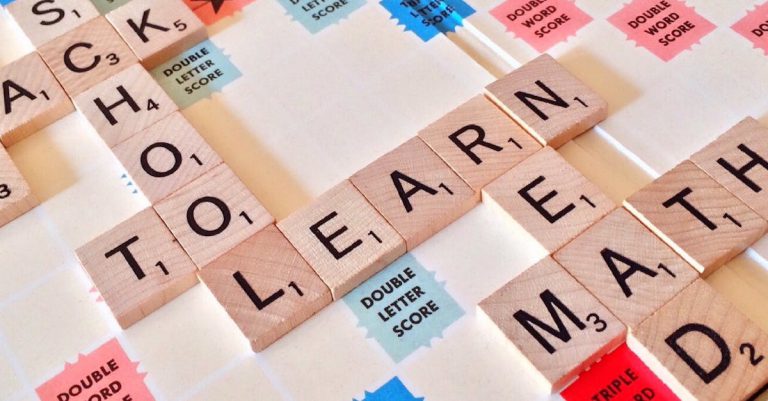High school is a crucial stage in a student’s academic journey, and one of the most important aspects of this phase is earning credits.
If you’re a student or a parent of a high schooler, you might be wondering how credits work in high school.
In this article, we’ll provide you with a comprehensive guide on high school credits, how they work, and what you need to know to succeed.
So, let’s dive in and explore the world of high school credits!
What Are High School Credits?
High school credits are units of measurement used to track a student’s progress towards graduation. Each course a student takes is worth a certain number of credits, typically ranging from 0.5 to 1.0 credits per class. In general, the more difficult the class, the more credits it is worth.
Why High School Credits Matter
High school credits matter because they are a key component of graduation requirements. In order to earn a high school diploma, students must earn a specific number of credits in various subjects, including English, math, science, social studies, and electives. Additionally, colleges and universities often look at a student’s high school transcript, which includes information about the number of credits earned and the grades received, when making admissions decisions.
How Many Credits Do You Need to Graduate High School?
The number of credits required to graduate high school varies by state and school district. In general, students need to earn between 18 and 24 credits to graduate. For example, the state of California requires students to earn a minimum of 230 credits to graduate, while the state of New York requires students to earn a minimum of 22 credits.
It’s important to note that while there are minimum credit requirements, many schools have additional graduation requirements, such as completing community service hours or passing a certain number of standardized tests. Students should check with their school counselors or administration to ensure they are meeting all graduation requirements.
Types of High School Credits
High school credits are essential for students to graduate and move forward to college or a career. There are different types of high school credits available, which include:
Core Credits
Core credits are the courses that are mandatory for students to take to meet the graduation requirements. These courses include English, Math, Science, Social Studies, and Foreign Language. These courses are crucial to a student’s education and will provide them with the foundation they need to succeed in college or a career.
Elective Credits
Elective credits are courses that students can choose to take based on their interests and future career goals. These courses include Art, Music, Physical Education, and Career and Technical Education. Elective credits allow students to explore their passions and develop skills that will be useful in their future endeavors.
Honors Credits
Honors credits are courses that are more challenging and rigorous than the standard core courses. These courses are designed for high-achieving students who want to push themselves academically. Honors credits are weighted, meaning they have a higher point value than regular courses, which can boost a student’s GPA.
Advanced Placement (AP) Credits
Advanced Placement (AP) credits are college-level courses that are offered in high school. These courses are designed to challenge students and prepare them for college-level coursework. AP courses are weighted and can earn students college credit if they pass the AP exam.
International Baccalaureate (IB) Credits
International Baccalaureate (IB) credits are similar to AP credits but are more internationally focused. IB courses are designed to develop students’ critical thinking and problem-solving skills. IB courses are also weighted and can earn students college credit if they pass the IB exam.
Understanding the different types of high school credits available can help students make informed decisions about their academic and career paths. For more information about high school credits, check out education.nh.gov.
How Do You Earn High School Credits?
High school credits are the units of measurement used to determine whether a student has completed the required coursework to graduate from high school. These credits are earned by completing specific tasks and meeting certain requirements set by the school. Let’s take a closer look at how high school credits are earned.
Attendance
One of the most fundamental ways to earn high school credits is by attending school. Schools typically require students to attend a certain number of days each semester to earn credit. Missing too many days can result in a loss of credit, and in some cases, a student may be required to repeat the entire course.
Grades
Grades are another important factor in earning high school credits. Most high schools have a minimum grade requirement for students to earn credit for a particular course. For example, a student may need to earn a passing grade of a C or higher to earn credit for a course. In some cases, a student may be required to retake a course if they do not meet the minimum grade requirement.
Passing Exams
In addition to grades, passing exams is another way to earn high school credits. Many high schools require students to take exams at the end of each semester to demonstrate their knowledge of the course material. If a student passes the exam, they may earn credit for the course. However, failing the exam may result in the loss of credit or the need to retake the course.
Completing Assignments
Completing assignments is also an important way to earn high school credits. Students are typically required to complete a variety of assignments throughout the semester, including homework, projects, and essays. These assignments are often factored into a student’s final grade, and failing to complete them may result in a loss of credit.
Participation
Participation is another factor that may impact a student’s ability to earn high school credits. Many courses require students to participate in classroom discussions and activities. This participation may be factored into a student’s final grade, and failing to participate may result in a loss of credit.
Keeping Track of Your High School Credits
High school credits are an essential part of every student’s academic journey. They serve as a measure of the student’s academic progress and determine their eligibility for graduation. Keeping track of your high school credits can be a daunting task, but it’s crucial to ensure that you meet all the graduation requirements and stay on track for college or career readiness.
Transcripts
Your high school transcript is a record of all the classes you have taken and the grades you have earned. It’s one of the most critical documents you will need for college applications and job interviews. Your transcript provides a comprehensive overview of your academic performance, including your GPA (Grade Point Average) and the number of credits you have earned.
It’s essential to review your transcript regularly to ensure that all the information is accurate. If you notice any errors, speak to your school counselor or registrar to have them corrected.
Graduation Requirements
Each state and school district has its own set of graduation requirements that students must meet to graduate. These requirements typically include a minimum number of credits in various subjects, such as English, math, science, social studies, and electives.
It’s crucial to familiarize yourself with your school’s graduation requirements and plan your course schedule accordingly. Your school counselor can provide you with a list of graduation requirements and help you create a plan to meet them.
Credit Recovery
If you fall behind on credits or fail a class, you may need to participate in a credit recovery program to get back on track. Credit recovery programs allow you to make up missed credits through online courses, summer school, or other means.
Speak to your school counselor to determine if credit recovery is an option for you. Keep in mind that credit recovery programs may have strict deadlines and requirements, so it’s crucial to stay on top of your coursework and meet all the program’s expectations.
Summer School
Summer school is an excellent way to earn additional credits and stay on track for graduation. Many high schools offer summer school courses that allow students to complete required classes or electives.
Summer school can also be an opportunity to take advanced courses or explore new subjects. Speak to your school counselor to determine if summer school is an option for you and to learn about available courses and requirements.
Tips for Earning High School Credits
Earning high school credits is an essential part of your journey towards graduation. As a high school student, it is crucial to understand how high school credits work and what you need to do to earn them. Here are some tips to help you earn high school credits:
Stay Organized
Staying organized is key to earning high school credits. Keep track of your assignments, deadlines, and grades. You can use a planner, calendar, or a mobile app to help you stay on top of things. This will help you avoid missing deadlines and ensure that you are completing all your coursework on time.
Make a Plan
Make a plan for how you will earn your required credits. Talk to your school counselor to find out what courses you need to take and when you need to take them. You can also create a four-year plan that outlines your course selections for each year of high school. This will help you stay on track towards graduation.
Take Challenging Courses
Take challenging courses that will help you prepare for college or your future career. This will not only help you earn high school credits but also make you more competitive when applying to colleges or jobs. Consider taking honors or advanced placement (AP) courses if they are available at your school.
Don’t Procrastinate
Procrastination can lead to falling behind in your coursework and missing deadlines. Avoid procrastination by breaking down large assignments into smaller, manageable tasks. This will help you stay on track and reduce stress levels.
Get Help When You Need It
Don’t be afraid to ask for help when you need it. Seek help from your teachers, tutors, or classmates. You can also attend after-school study sessions or join study groups. Getting help will ensure that you are understanding the material and completing your assignments accurately.
Conclusion
High school credits are crucial for graduating and moving on to higher education. Understanding how they work and what you need to do to earn them is essential for success.
By following the tips we’ve outlined in this article, you’ll be well on your way to earning the credits you need to achieve your academic goals.
Remember: earning high school credits is not only about meeting the requirements, but also about gaining knowledge and skills that will benefit you in the future.






